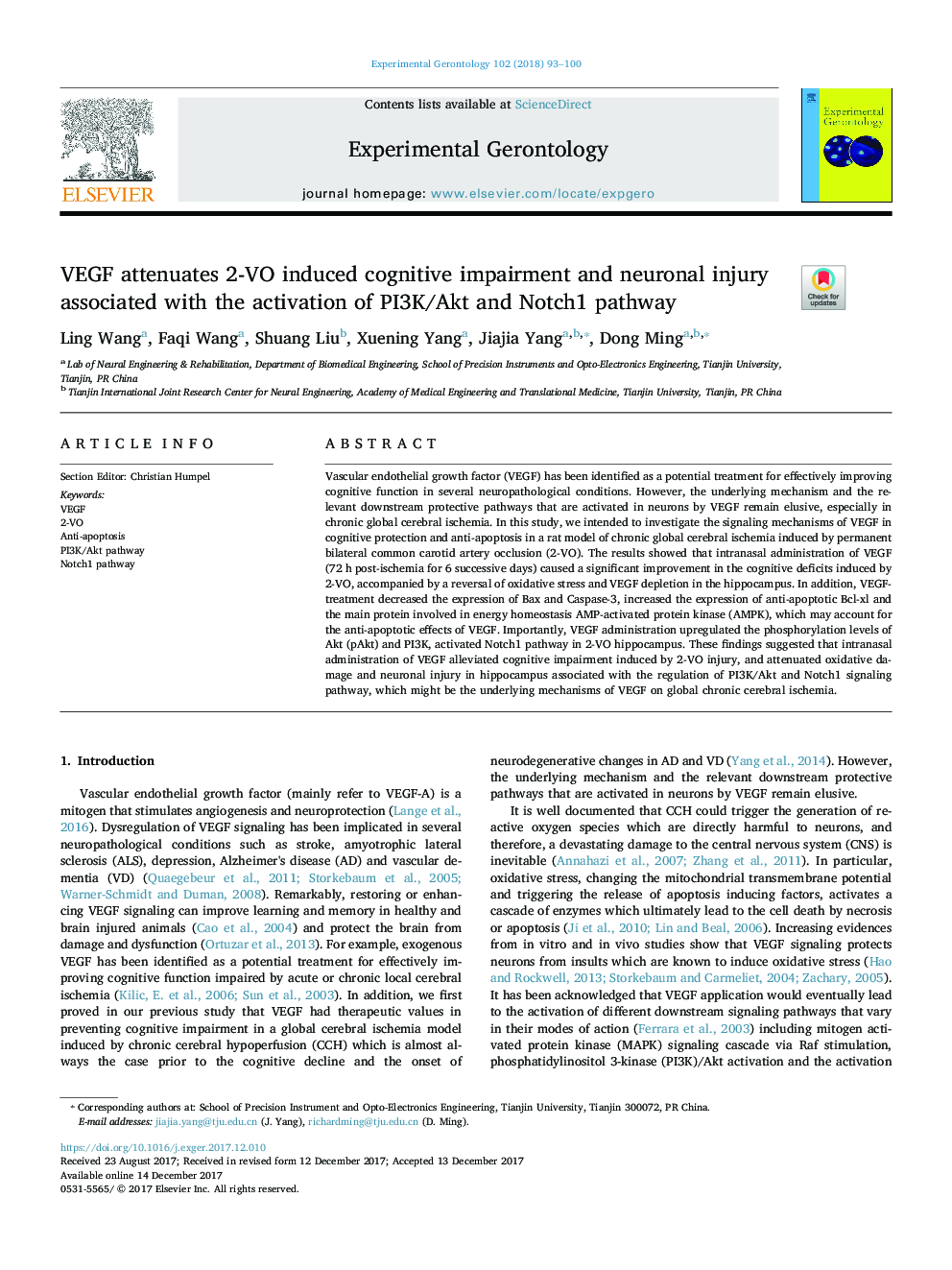| Article ID | Journal | Published Year | Pages | File Type |
|---|---|---|---|---|
| 8262596 | Experimental Gerontology | 2018 | 8 Pages |
Abstract
Vascular endothelial growth factor (VEGF) has been identified as a potential treatment for effectively improving cognitive function in several neuropathological conditions. However, the underlying mechanism and the relevant downstream protective pathways that are activated in neurons by VEGF remain elusive, especially in chronic global cerebral ischemia. In this study, we intended to investigate the signaling mechanisms of VEGF in cognitive protection and anti-apoptosis in a rat model of chronic global cerebral ischemia induced by permanent bilateral common carotid artery occlusion (2-VO). The results showed that intranasal administration of VEGF (72Â h post-ischemia for 6 successive days) caused a significant improvement in the cognitive deficits induced by 2-VO, accompanied by a reversal of oxidative stress and VEGF depletion in the hippocampus. In addition, VEGF-treatment decreased the expression of Bax and Caspase-3, increased the expression of anti-apoptotic Bcl-xl and the main protein involved in energy homeostasis AMP-activated protein kinase (AMPK), which may account for the anti-apoptotic effects of VEGF. Importantly, VEGF administration upregulated the phosphorylation levels of Akt (pAkt) and PI3K, activated Notch1 pathway in 2-VO hippocampus. These findings suggested that intranasal administration of VEGF alleviated cognitive impairment induced by 2-VO injury, and attenuated oxidative damage and neuronal injury in hippocampus associated with the regulation of PI3K/Akt and Notch1 signaling pathway, which might be the underlying mechanisms of VEGF on global chronic cerebral ischemia.
Related Topics
Life Sciences
Biochemistry, Genetics and Molecular Biology
Ageing
Authors
Ling Wang, Faqi Wang, Shuang Liu, Xuening Yang, Jiajia Yang, Dong Ming,
